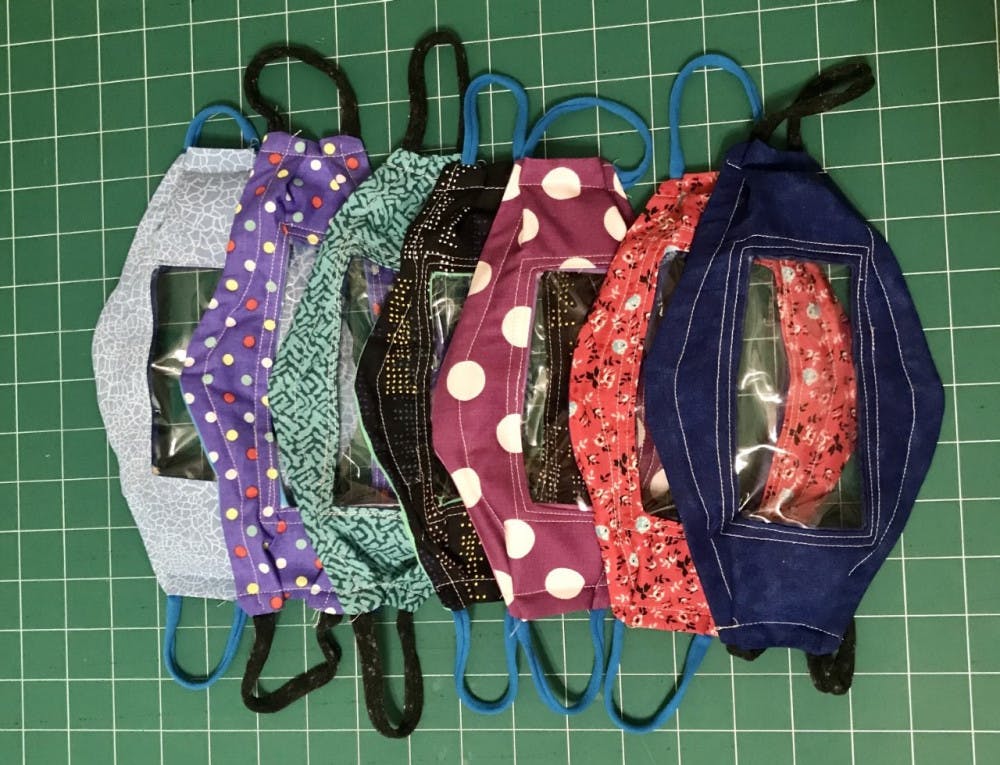For many, masks have become a symbol of protection and social responsibility. But for the deaf and autistic communities, it has become difficult to communicate with this new normal.
Yvonne Stride, a UF alumna and Gainesville occupational therapist, combats this by making homemade masks with a clear panel to promote effective communication for these communities.
Stride was already making standard fabric masks but modified them after noticing communication struggles between her coworkers and the patients. She has sold more than 60 masks online so far.
“The demand was a lot greater than I ever imagined it would be,” Stride said.
The masks are made from cotton quilting fabric, clear vinyl and T-shirt yarn. Due to an elastic shortage, Stride decided to use T-shirt yarn as an alternative for the earloop.
Stride finds that the masks are also useful when interacting with children with autism, as the masks provide facial recognition.
“I work with children on the spectrum, and it [the masks] made it possible for me to communicate with them easier since they could see social cues and my mouth and facial expressions, like a smile,” Stride said.
Kelli Vaudreuil, a Gainesville speech-language pathologist, uses Stride’s masks to communicate with her patients.
“In the beginning, I thought, there’s no way that we can continue to do speech therapy with masks,” Vaudreuil said. “But Yvonne’s masks have allowed us to see some kids successfully.”
Vaudreuil said that common practices involve cues such as touching the upper lip to encourage children to use the right sounds when speaking. Without a clear mask, it is difficult for patients to see where they are pointing. Using a clear mask allows the patients to see the cue which prompts them to use the right sounds.
“I also think that the social part of it [the masks] has to be good, really, for any field where you’re working on building relationships and trying to be recognizable to people,” Vaudreuil said.
Stephen Hardy, a lecturer for the Speech, Language, and Hearing Sciences department at UF, said he believes these masks would be useful for communicating with people who are hard of hearing.
Hardy said he is hopeful that these masks can be easily accessible to everyone to make communication possible for all members of the community.
Masks are sold for $10 each, plus shipping. If you would like to purchase a mask, you can contact Yvonne Stride at stridemasks@gmail.com to place your order.
The masks are made from cotton quilting fabric, clear vinyl and T-shirt yarn.






